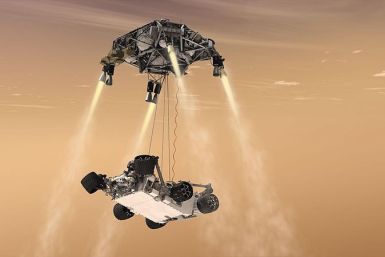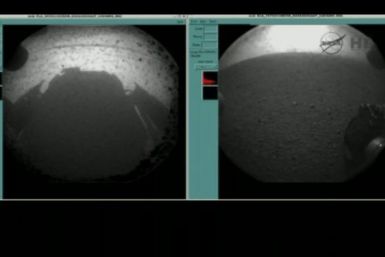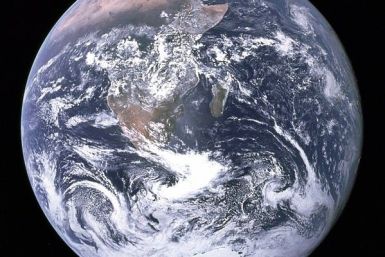Iowa, the largest state grower of corn and soy, has seen the size of its territory under extreme drought conditions rise from almost 31 percent last week to nearly 70 percent since Tuesday.
The Martian crater where Curiosity rover landed Sunday looks strikingly similar to the Mojave Desert in California, said scientists on Aug. 8.
Three days into its mission, the Mars Science Laboratory, known as Curiosity, is continuing to dazzle scientists and specialists with its first data reports from the red plant. Still more technology companies have acknowledged their participation in the NASA project
New photos are streaming back to Earth from NASA's latest Mars rover, Curiosity.
After its Curiosity rover successfully landed on Mars yesterday, NASA posted a video on Tuesday that offers viewers another chance to "relive the nail-biting terror and joy as NASA's Curiosity rover successfully lands on Mars the evening of Aug. 5." NASA's video of the Curiosity landing on Mars' Gale Crater is embedded at the bottom of this page.
Reports of NASA's Activity Lead Bobak Ferdowsi became one of the most trending topics across a host of social media sites including Twitter, Meme and Facebook Sunday, as millions watched Curiosity's successful landing at 10:31 pm PDT (early morning EDT) August 5 on Mars after the dangerous "seven minutes of terror."
Scanning the first images of an ancient crater that may hold clues about whether life existed on Mars, NASA scientists hailed the Mars Rover Curiosity's landing on the Red Planet as a "miracle of engineering."
With Curiosity now safely on the surface of Mars after its spectacular entry into the Martian atmosphere, NASA unveiled a low-resolution, color video from the rover, which showed what someone, riding the spacecraft, could have seen during the last couple of minutes of the historic landing.
Now that the Mars Curiosity Rover has landed on the red planet and sent back pictures from a new part of the planet, NASA is broadcasting news about the rover live though Ustream.
Now that the Curiosity Mars Rover has landed successfuly on the Red Planet, where can the pictures it is sending to Earth be found first?
NASA researcher James Hansen is coauthor of a new paper that places the blame for heat waves over the past few years squarely on global warming.
Space enthusiasts gathered in Times Square very early on Monday morning to glimpse the first images from NASA's new Mars rover, Curiosity.
Investors may not know that many of their technology companies played a huge part in the system design, software, features and functions. They include Intel Corp. (Nasdaq: INTC), Siemens Corp. (NYSE: SI) and General Dynamics Corp. (NYSE: GD).
NASA's most advanced Mars rover Curiosity has landed on the Red Planet. The one-ton rover, hanging by ropes from a rocket backpack, touched the Martian surface Sunday to end a 36-week flight and begin a two-year investigation. Have a look at images of the Martian surface and the happy moments at NASA following the successful landing of Curiosity.
NASA's Curiosity rover landed successfully on Mars at approximately 1.32 a.m. ET after completing a journey of 352 million miles in 36 weeks.
NASA will be attempting one of its most impressive and technically challenging feats ever, as it tries to land the Curiosity rover on the surface of Mars within hours. Obviously, Mars is pretty far away, which means you can't see it in person. So how best to watch the landing? Read on.
Count the Angry Birds franchise mavens among those excited about the Mars Curiosity Rover landing, as they have added more levels to their Utopia planet, Mashable reported. Everyone's favorite cranky birds will be flying through the "air" on Mars.
NASA will be streaming coverage of the Curiosity rover landing online starting at 11:30pm Eastern Time. There are also watching events at museums and science centers across the U.S. New York City will get to watch the landing on a very big screen - the Toshiba Vision screen at One Times Square, which is usually the focal point for the New Year's Eve ball drop.
If the Chinese bring a flag to plant when they land on the moon in 2013, they won't be the first: American astronauts on the Apollo missions have planted six flags already. And according to recent scientific observations, five of them are still standing upright.
A study led by a former climate change skeptic concludes that man-made greenhouse emissions have contributed to the planet's rising temperature.
Researchers compared images of deep-water polygonal formations on Earth's sea floor to data on similar Martian formations, and conclude that they were likely formed by similar geological processes.
The future of National Oceanic and Atmospheric Administration's (NOAA) Aquarius laboratory, the world's only undersea lab appears bleak owing to budget cuts from the Federal Government.





![Mars Rover Curiosity Pictures: See The First 360-Degree Panorama From Gale Crater [PHOTO]](https://d.ibtimes.com/en/full/741916/mars-rover-curiosity-pictures-see-first-360-degree-panorama-gale-crater-photo.jpg?w=297&h=199&f=c9f5a8e450610fb7b7a24a68e9d49222)



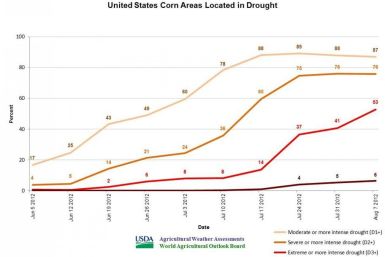
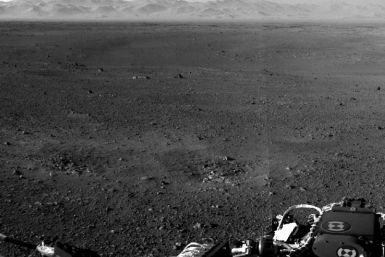
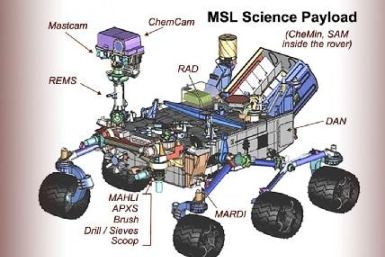
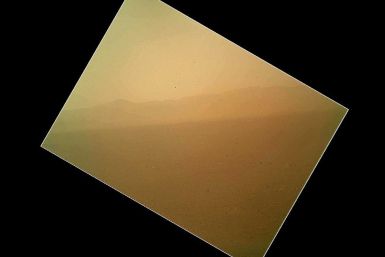
![Watch The Landing Of NASA's Mars Rover Curiosity [VIDEO, PICTURES]](https://d.ibtimes.com/en/full/738554/watch-landing-nasas-mars-rover-curiosity-video-pictures.jpg?w=385&h=257&f=d8eeeee9190af36985c42591c31f6244)


![Watch The Landing Of NASA's Mars Rover Curiosity [VIDEO, PICTURES]](https://d.ibtimes.com/en/full/738562/watch-landing-nasas-mars-rover-curiosity-video-pictures.jpg?w=385&h=257&f=f513dfd0dfc80c437a83bfaafe4c351e)


